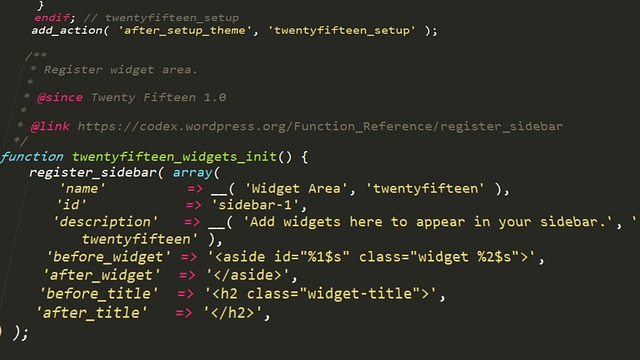Enterprise resource planning (ERP) software is a fundamental tool for businesses looking to streamline, optimize, and grow. In today’s competitive global market, organizations need to stay one step ahead of the competition with the latest ERP software available. So what ERP software is trending right now? Why is trending? What benefits does it provide businesses?
Digital transformation and the digital economy have created an environment where a competitive edge simply cannot be achieved without the assistance of ERP software. ERP solutions enable companies to drive value and performance gains across all areas of their operations, from accounting to workflow. According to a survey conducted by the Software & Information Industry Association, the subscription market for ERP software increased by 8.3% between 2018 and 2019. Other studies have also reported the popularity of ERP solutions, particularly in terms of improving organizational operations and enhancing customer experience.
In this article, you will learn about the current state of ERP software solutions and the trends driving its increasing popularity. We’ll examine how ERP solutions are being used by various businesses to facilitate improved operations, customer engagement, and enhanced operational efficiency. We’ll also explore the benefits that ERP software can have for different types of organizations. Finally, we’ll provide some advice on how to select the best ERP software solution for your business.
The use of ERP software solutions is a proven way to streamline, optimize, and drive value for any business. Now, with the evolution of technology and the global shift towards digital transformation, businesses must leverage the most up-to-date ERP solutions available in order to stay competitive in this rapidly changing environment. The article will provide a comprehensive look at the current trends in ERP software and how they can be beneficial for businesses.
Definitions
Enterprise Resource Planning (ERP) software is designed to streamline the internal processes of a business, enabling it to operate with greater efficiency and effectiveness.ERP systems typically allow for the integration of all data across the organization – such as financial, human resources, supply chain, and inventory – in one single source system. This makes it easier for businesses to monitor the performance of their operations and make better decisions.
In recent years, ERP software has become increasingly popular, as businesses have come to understand the important role this software plays in digital transformation. ERP software is used to create a holistic view of data across the enterprise, improve transparency and allow different parts of the business to work together.
ERP systems allow businesses to keep data organized, keep track of costs, and increase the accuracy of their business processes. ERP software is also used to automate manual processes, giving businesses the opportunity to save time and money.
ERP software is an invaluable tool for businesses of all sizes, as it can help improve operational efficiency and accuracy, reducing the need for human intervention. It also allows organizations to maintain a competitive edge by helping them make better decisions, remain agile, and respond more quickly to changes in the market.
ERP software is often used in conjunction with other software such as customer relationship management (CRM) systems, data warehouses, or analytics to facilitate the flow of data between different systems. It can also be used with artificial intelligence (AI) and big data systems to facilitate data-driven decision making.
ERP Software Overview
What is ERP Software?
Enterprise resource planning (ERP) software is a type of application used by organizations to manage their day-to-day operations. ERP systems are comprehensive suites of applications that integrate with various business functions including accounting, inventory management, order fulfillment, supply chain management, and customer relations. By utilizing a single, integrated system for all business operations, organizations can streamline their processes and achieve greater efficiency.
Trending ERP Software
With the rise of digital technologies, an array of ERP systems has become available in the market. Each ERP system has its own set of features and advantages, making it important for businesses to choose the right software for their needs. Here are some ERP software solutions that are trending right now:
- Microsoft Dynamics: Microsoft Dynamics is a comprehensive suite of business applications that enable organizations to automate and manage their core business processes. With its comprehensive suite of features, Microsoft Dynamics makes it easy for organizations to gain visibility into their operations and make informed decisions.
- SAP: SAP is a well-known and widely used enterprise resource planning software. It is designed to help organizations streamline their operations, manage their financials, and enhance their customer experience. SAP offers an extensive set of features and is capable of handling large data sets.
- Oracle E-Business Suite: Oracle E-Business Suite is an ERP software solution designed to help organizations automate their core business processes. It offers multi-channel analytics, integrated business intelligence, and robust security features that enable organizations to gain insight into their data and streamline their operations.
- Salesforce: Salesforce is a cloud-based CRM platform that helps businesses manage their customer relationships. It offers a range of features such as sales automation, customer service, analytics, and marketing automation. With its comprehensive feature set, Salesforce enables businesses to improve their customer experience.
- NetSuite: NetSuite is an ERP software designed to help organizations improve their operational efficiency. Its comprehensive suite of features includes financial management, inventory management, order fulfillment, customer relationship management, and supply chain management. NetSuite also offers mobile apps and integration with third-party applications.
ERP systems are becoming increasingly popular due to their ability to streamline operations and improve organizational performance. By leveraging the features of these systems, organizations can gain visibility into their operations and make informed decisions. For businesses looking to maximize their efficiency and maximize their profitability, ERP systems are a valuable option.
Advantages of ERP Solutions
ERP and Its Benefits
Enterprise resource planning (ERP) software has become increasingly popular in the ever-growing competitive marketplace. This type of software offers organizations of all sizes a way to move away from manual processes and automate their business operations. By offering efficient and cost-effective automation, ERP systems help businesses streamline their processes and get the most from their data. In addition, ERP software helps businesses reduce their costs, accelerate time-to-market, and expand their operations.
It is no surprise that ERP software is in high demand; this software provides companies with a wide range of advantages. ERP systems offer organizations the ability to integrate processes and data from multiple sources, including accounting, payroll, customer service, manufacturing, and inventory management. As such, ERP systems are able to aggregate and store vast amounts of data while preventing data silos. This data can then be used to make well-informed decisions. Moreover, ERP systems allow businesses to access real-time data from a single dashboard.
ERP and Its Advantages
Apart from data integration and management, ERP systems also offer organizations a wide variety of benefits, including scalability, cost-effectiveness, and better oversight. ERP systems can be scaled up or down according to a business’ needs, making them ideal for businesses of all sizes. Furthermore, ERP systems are typically more cost-effective than manual processes, as they eliminate the need for external resources. Additionally, ERP systems offer better oversight; businesses can easily manage their operations and identify issues before they become major problems.
Lastly, ERP systems can greatly enhance customer experiences, as they reduce customer service wait times and allow businesses to send automated marketing messages to customers. This type of software can also help businesses understand their customers’ needs better, as it provides valuable insights into customer behavior. Overall, ERP software is a cost-effective and time-saving solution that can help businesses optimize their customer experiences and gain a competitive edge.
Popular ERP Solutions on The Market Today
NetSuite
NetSuite is an enterprise resource planning (ERP) software developed by Oracle. It is one of the most popular and widely used ERP solutions on the market today. It is used by over 40,000 organizations across the globe. It is designed to provide business owners with the real-time data they need to make informed decisions. NetSuite helps optimize operations, streamline business processes, and improve overall customer service. It is also a cloud-based software which offers scalability and flexibility.
NetSuite allows companies of all sizes to better manage their finances, supply chain, customer relationships, and more. It offers features such as accounting, budgeting, billing, invoicing, payroll, inventory management, customer service, CRM (customer relationship management), and project management. It also integrates with third-party platform and allows companies to access their data from any device.
SAP
SAP is an ERP solution developed by SAP SE. It has been one of the most popular ERP solutions for many years and is used by more than 30,000 organizations around the world. SAP includes a suite of business applications and modules for business processes, from finance and marketing to production and logistics. It is known for its powerful analytics and reporting capabilities.
SAP offers features such as business workflow, data mining, analytics, forecasting, budgeting, payroll, and supply chain. It also provides a mobile application for Android and iOS. With SAP, companies can customize and automate processes to save time and resources. It also provides the ability to manage and analyze large amounts of data from different sources.
Overall, NetSuite and SAP are two of the most popular ERP solutions on the market today. They both offer powerful features and tools to help businesses streamline their operations. Companies should evaluate their current requirements and needs before selecting an ERP solution that will best meet their needs.
Conclusion
The question of which Enterprise Resource Planning (ERP) software is trending is an interesting one to consider. With the rapid growth of technology, it is likely to see increased demand for different systems as businesses look to expand and maximize their resources. In order to stay current with the best and most efficient tools available, it is important to consider which solutions are preferred by organizations today.
At our blog, we will endeavor to keep readers informed of new releases and updates in the ERP software space. Keeping up to date with these advances can make a world of difference in productivity and profitability for companies who have embraced these solutions. Be sure to regularly follow the blog for the latest advancements in ERP software – don’t miss out!
Frequently Asked Questions:
Q: What are the features of the latest ERP solutions?
A: The latest ERP solutions come with a range of features, including automation, facilitating collaboration, and performance optimization. Many of these solutions also provide predictive analytics and customizable reporting for businesses to reach their ultimate objectives.
Q: What are the most widely used ERP systems?
A: Commonly used ERP systems include Oracle, Dynamics ERP, SAP, and Infor. ERP solutions continue to evolve so different businesses may prefer alternative solutions depending on their size or needs.
Q: What benefits do ERP solutions provide?
A: ERP solutions provide businesses with increased visibility, valuable insight, and reduced costs. Companies that have adopted these systems have seen product upgrades, reduced redundancies, and improved customer service.
Q: Are ERP solutions expensive?
A: The cost of ERP solutions can vary depending on the size of the organization and the number of features. The cost of an ERP system is typically a worthwhile investment, as the software provides invaluable support for businesses looking to optimize their efficiency.
Q: How secure are ERP solutions?
A: ERP solutions come with a range of security features to help protect vital information and resources. These features can include access control, data protection, and audit trail capabilities to protect user data and transactions.



